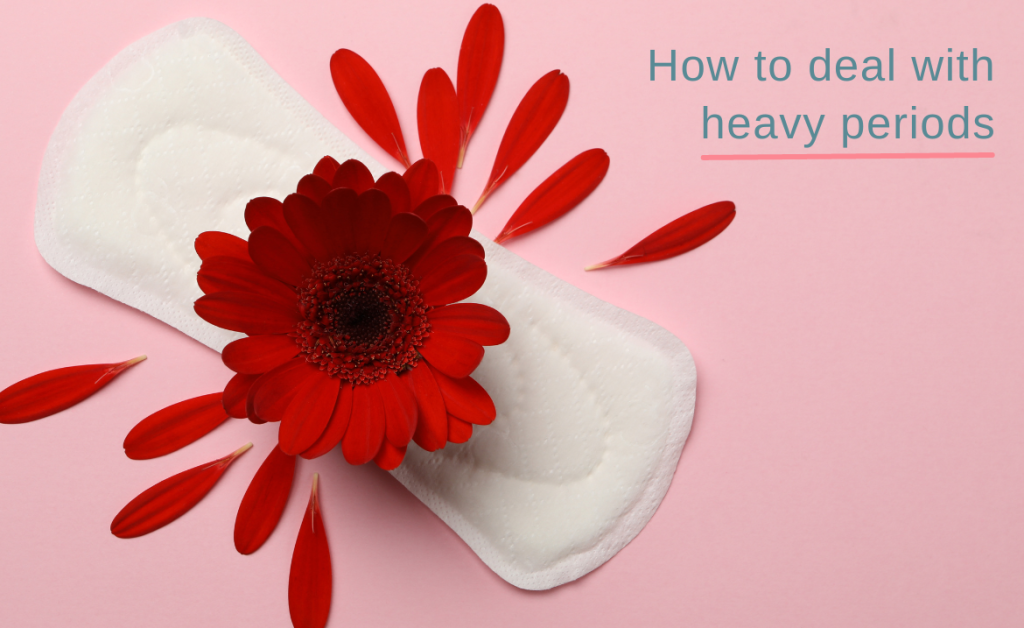Having your periods can be uncomfortable and painful. The side effects of hormonal changes can really play with your mood and how you feel about yourself.
Truth be told, the menstrual cycle is complex. While each woman’s experience differs, 1 in 5 women are affected by heavy periods, also known as Menorrhagia. The heavy loss of blood can significantly affect one’s day-to-day life and be physically and emotionally distressing. However, the good news is – there are solutions available.
So, without further ado, let’s look at what causes heavy periods and the treatment options available.
What is a heavy period?
Before we discuss the causes and treatment options, it is essential that you understand what defines heavy menstrual bleeding.
A period is heavy if you:
- Are passing large clots of blood (roughly the size of a 50-cent coin).
- Change your pad/tampon every hour or more.
- Get up several times during the night to change your pad/tampon.
- Bleed through your clothing.
- Use a large maternity pad when you sleep.
- Have periods that last more than eight days.
- Find that your periods are affecting your day-to-day life.
What causes heavy periods?
Some of the most common causes of heavy menstrual bleeding are:
- Fibroids
- Polyps
- Adenomyosis (endometrial tissue grows into the uterine wall)
- Endometrium becoming too thick or cancerous
- Medications such as blood thinners
In some instances, it can be normal to have a heavy period, such as after pregnancy or during menopause. But there are cases in which we never discover the cause – this is known as dysfunctional uterine bleeding (DUB).
Diagnosis of heavy menstrual bleeding
Before proceeding with any treatment, Dr Kothari will carry out the following.
- Ask for your full medical history.
- Run some blood tests to check your iron levels and other conditions.
- Ask whether you are planning to start a family.
- Carry out an ultrasound.
- Carry out a pap smear (test) for infection, inflation, and other possible changes.
Based on the initial test results, Dr Kothari may carry out further investigations, which may include:
- Hysteroscopy – a thin instrument is inserted into your vaginal and cervix to examine your uterus.
- sonohysterography – in which your doctor inserts fluid into your uterus and uses an ultrasound to look for any underlying issues in the lining of your uterus.
Treatment of heavy periods
Based on your age, medical history, test results, and whether you wish to become pregnant, Dr Kothari will tailor a treatment plan to suit your circumstances.
The two main treatment options available are:
- Medical– this form of treatment focuses on reducing bleeding and pain. It involves taking an oral medication, such as tranexamic acid, anti-inflammatory drugs, the oral contraceptive pill, or inserting an Intrauterine Device (IUD).
- Surgical – aims to stop heavy bleeding by removing potential causes such as fibroids. Depending on the underlying issue, you may undergo an endometrial ablation, myomectomy, or hysterectomy.
Lifestyle changes to help manage heavy periods
In the meantime, you can make certain lifestyle changes to help manage heavy periods.
- Use a menstrual cup instead of tampons/pads.
- Use heat pads to reduce pain.
- Get plenty of rest.
- Regular moderate exercise such as yoga or walking.
- Consider taking iron supplements to help prevent anaemia.
- Eat vitamin-rich foods and take supplements to prevent iron deficiency.
When to see a doctor
If you are experiencing heavy bleeding, as mentioned earlier in this article, we strongly advise you to get a referral from your GP to speak with Dr Kothari.
In the meantime, if you have any questions or concerns, our team is here to help. Contact us on 02 4225 1999.

